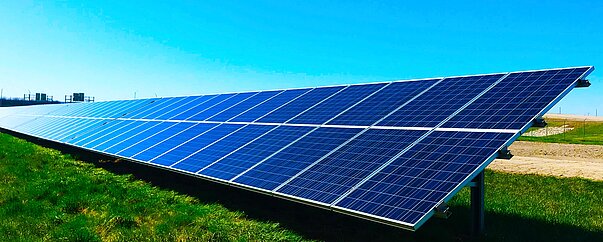
The ambitious goals of the Paris Agreement can only be achieved through close international cooperation to minimise greenhouse gas emissions. Market-based mechanisms can play a central role. The World Bank’s Transformative Carbon Asset Facility (TCAF), launched by Germany in cooperation with Norway, Sweden and Switzerland – and which both the UK and Canada have since joined – supports developing countries in establishing and implementing market-based climate change mitigation mechanisms by providing results-based financing for proven emission reductions achieved at sectoral level.
The Facility supports activities that are integrated into the respective national climate change strategies, thus boosting national climate change mitigation effort and securing a lasting contribution to achieving climatically sound sustainable development. TCAF buys a portion of the carbon assets generated by the programs. The remaining carbon mitigation outcomes can be used by the host country towards achieving the NDC targets.
By creating favourable conditions for private investment in climate change technologies, the public funds are to induce a leverage effect and make a sustainable contribution to transformative change in the partner countries. Using public funds to the tune of 500 million US dollars, private industry is to be mobilised to generate climate investment worth over two billion US dollars. The transformative experience is to be transferred to other regions and will also contribute to the implementation of the Paris Agreement.
Following the TCAF’s launch at the climate change conference in Paris in 2015, implementation plans and legal documentation were finalised in cooperation with the participating countries. The TCAF was subsequently approved by the World Bank and became operational in March 2017. Activities are currently being implemented in India, Colombia, Morocco, the Philippines and Vietnam.
Countries: India, Colombia, Morocco, Philippines, Vietnam
Role of BMWK: Co-financed by BMWK
Lifecycle: since 2015
Implementation: World Bank
Further Information: www.tcaf.worldbank.org
Contact: Thomas Forth, thomas.forth.extern@bmwk.bund.de
Cookie Settings
Marketing-Cookies werden von Drittanbietern oder Publishern verwendet, um personalisierte Werbung anzuzeigen. Sie tun dies, indem sie Besucher über Websites hinweg verfolgen.
Provider:
Statistik Cookies
Statistik-Cookies dienen der Analyse und helfen uns dabei zu verstehen, wie Besucher mit unserer Website interagieren, indem Informationen anonymisiert gesammelt werden. Auf Basis dieser Informationen können wir unsere Website für Sie weiter verbessern und optimieren.
Provider:
Erforderliche Cookies
Erforderliche Cookies sind für den reibungslosen Betrieb der Website zuständig, indem sie Kernfunktionalitäten ermöglichen, ohne die unsere Website nicht richtig funktioniert. Diese Cookies können nur über Ihre Browser-Einstellungen deaktiviert werden.
Provider: